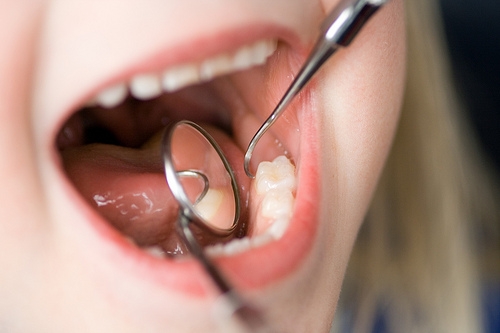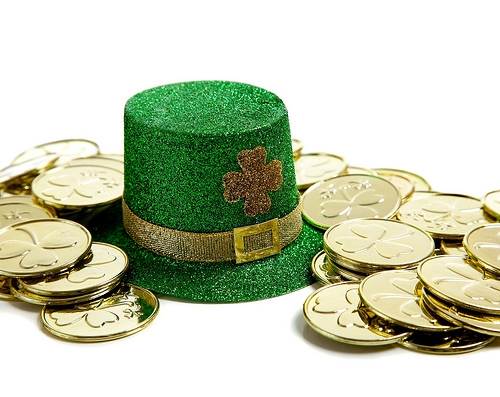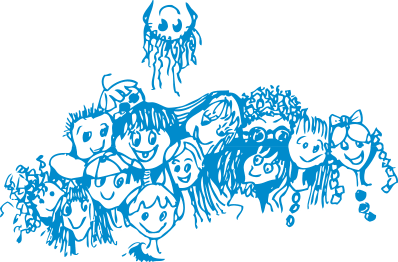April 1st, 2014

The wisdom teeth are the last of the permanent molars to emerge from the gums. This can occur as early as age 17 or as late as 21. Though some teens and young adults experience a completely normal tooth eruption with ideally aligned molars that pose no health threat, this is not the case for everyone.
According to the American Association of Oral and Maxillofacial Surgeons (AAOMS), wisdom teeth must meet specific criteria to avoid a required extraction. These guidelines include:
- Completely erupted and non-impacted
- Completely functional
- Painless
- Free of decay
- Disease-free
- Capable of being properly cleaned
If one or more of your child’s wisdom teeth do not meet these conditions, we recommend scheduling an appointment with Dr. Stephen Korson; an extraction may be necessary.
Impacted wisdom teeth
One of the most common reasons for extracting a wisdom tooth is due to impaction. An impacted wisdom tooth is one that has not erupted and will not fully erupt from the gums. Usually this occurs because there is not enough room for the tooth to emerge. Impaction can be painful and can also lead to infection if left untreated. According to the AAOMS, roughly 90 percent of the teen and adult population has at least one impacted tooth. Extracting an impacted wisdom tooth early can help prevent future complications, such as periodontal disease, infections, and damage to neighboring teeth.
Extracting fully erupted wisdom teeth
Even if your child’s wisdom teeth are fully erupted, Dr. Stephen Korson and our team at Summit Pediatric Dentistry may recommend removing them as a preventive measure. Fully-erupted third molars often interfere with a healthy bite. This can lead to problems with tooth and jaw alignment and may also contribute to the development of headaches. Your child’s wisdom teeth may also be more prone to tooth decay and gum disease, because their location in the back of the mouth makes them more difficult to reach for brushing and flossing.
To learn more about wisdom teeth, or to schedule an appointment with Dr. Stephen Korson, please give us a call at our convenient Summit, NJ office!
March 25th, 2014

You already know that Summit Pediatric Dentistry recommends you come in for a checkup and cleaning at least every six months, but do you know what your child’s dental needs are? From the time children are babies and growing in their first teeth, their oral health care needs may be different from adults. It’s important to know what they need, and when, to help them grow strong, healthy teeth.
When to See Our Team at Summit Pediatric Dentistry
While dental care (at home) can begin as soon as your baby starts to show signs of that first tooth, most experts do not recommend you see a dentist until your child is at least one year old. The child will likely be too young at this point to have a full dental exam, but we can take a look at your baby’s teeth and give you tips for brushing and flossing properly.
By the time your child has all of his or her baby teeth—usually around 24 to 30 months of age—we can begin scheduling regular checkups and cleanings.
What to Expect on the First Visits
The first visit to our Summit, NJ office for a full exam will mostly involve getting to know Dr. Stephen Korson and staff members, and making your child feel comfortable. Let us know if you would like to sit in the exam room during the appointment, but keep in mind that it may be beneficial to leave your child alone with Dr. Stephen Korson for a portion of the appointment so we can start building trust with your child.
Our team at Summit Pediatric Dentistry will likely do some or all of the following during your child's visit:
- Look for signs of decay or other tooth or gum problems
- Examine your child’s bite, checking for misalignment that could lead to problems in the future
- Clean the teeth, and apply fluoride if your child is old enough
- Talk to you about proper oral health care for your children
- Answer any questions you may have about caring for your child’s teeth, which may include topics like fluoride needs, nutrition and diet, teething, and the frequency of future checkups
In most cases, we will recommend that you bring your child in every six months for regular checkups, the same as your recommended frequency.
Understanding your child’s unique dental needs is important for providing the best possible care when it becomes necessary. We look forward to building a good relationship with your child so coming to the dentist is a fun, rewarding experience and not a frightening one.
March 18th, 2014

The primary teeth are the initial teeth that erupt from a child’s gums in the first few years of childhood. There are a total of 20 primary teeth, most of which will have appeared no later than age three. Because they are only temporary, some parents believe they are less important than the permanent teeth that will emerge around age five or six. However, primary teeth hold a special significance and are important for a child’s long-term oral health.
Function and importance of baby teeth
Baby teeth have several basic functions. Decay can interfere with these functions, and potentially lead to life-long complications. For example, severe tooth decay that causes tooth loss during childhood, perhaps due to sleeping with a bottle at night, can obstruct a child’s speech development. It can also hinder his or her ability to sufficiently chew food.
The primary teeth also serve as place-holders for the permanent teeth. When a primary tooth falls out or must be removed before its time, surrounding teeth may shift into the space the tooth once held. This can cause orthodontic complications once the permanent teeth begin to erupt, which can lead to serious tooth alignment problems and call for extensive orthodontic treatment.
Caring for baby teeth
Dr. Stephen Korson and our team at Summit Pediatric Dentistry will tell you it is never too early to begin caring for your child’s teeth. Baby teeth require the same care and attention that permanent teeth do. The American Dental Association recommends that children see a dentist as soon as the teeth begin to erupt from the gums. Early childhood dental visits usually include examinations, cleanings, fluoride treatments, and hygiene education for parents. It is also important to adopt an oral care routine at home that includes daily brushing, flossing, and dietary modifications that support a lifetime of good oral health.
To learn more about baby teeh, or to schedule an appointment with Dr. Stephen Korson for your little one, please give us a call at our convenient Summit, NJ office!
March 11th, 2014

“St. Patrick's Day is an enchanted time -- a day to begin transforming winter's dreams into summer's magic.” Adrienne Cook
Lucky green shamrocks, leprechauns, and pots of gold – it must be St. Patrick’s Day! If you’re not Irish, how do you go about celebrating St. Patrick’s Day? It’s easy: You just put on one of those tall leprechauns hats, dress in green from head to toe, and wear one of those carefree pins that say “Kiss Me, I’m Irish”. On St. Patrick’s Day, everyone is Irish, and that is the universal beauty of the holiday. Celtic pride does not discriminate.
Wondering what our team at Summit Pediatric Dentistry is doing to celebrate March 17th? Well, we’ve thought about doing everything from handing out lucky gold coins (you know, the fake ones that are made of chocolate) to shamrock stickers. Maybe we’ll even give away green toothbrushes and floss! You’ll never know unless you come in to see Dr. Stephen Korson !
All kidding aside, St. Patrick’s Day is an important cultural and religious holiday. There are lavish parades and church services across Ireland on March 17th. Over time, however, the holiday has developed into a day to observe Irish culture in general. In places like England and the United States, where there is a large Irish Diaspora, the holiday has greater significance than other countries. From the streets of Boston to St. Patrick’s Cathedral in New York, it is a day of celebration, and many Americans of Irish descent will cook up a traditional meal of corned beef and cabbage.
So, to all of you with Irish ancestry, and to all of you who have decided to be Irish for the day, our office wishes you a Happy St. Patrick’s Day. Good luck looking for a pot of leprechaun gold, which is said to exist at the end of the rainbow. However, keep away from those sugary Lucky Charms; sweet cereals might taste good, but your kids’ teeth might not be feeling too lucky if they eat it for breakfast every day. Have a great St. Paddy’s Day!







